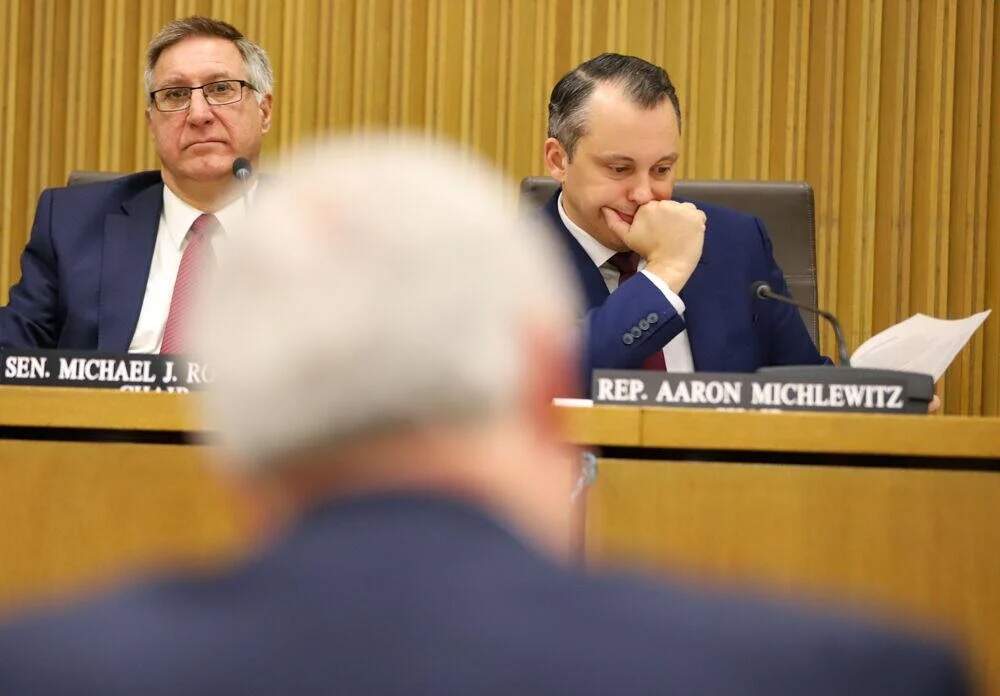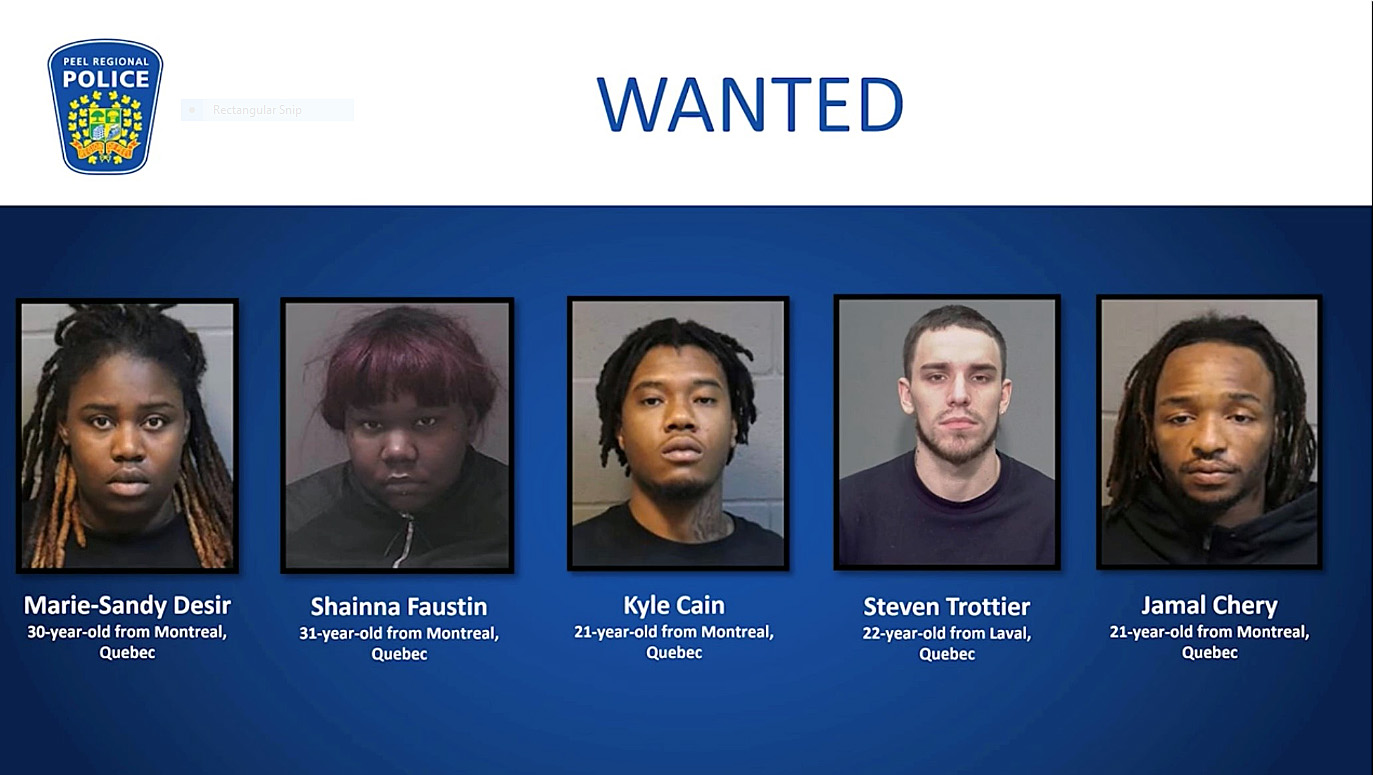Gambling
Negotiations begin after Senate unveils budget with free college and transit proposals

Budget writers in each corner of the State House have now laid out their priorities, but there’s still plenty of negotiating to do before Gov. Maura Healey gets a compromise budget bill on her desk.
The draft Senate Ways and Means Committee budget unveiled Tuesday calls for about $100 million less in spending than the final $58 billion House-approved budget. Senators will take up the spending bill for debate in two weeks to tack local earmarks and policy priorities onto the final bill.
Though their bottom lines aren’t far off — and will likely be closer after Senate floor amendments — the differences between the two bills span from whether or not to legalize online Lottery sales, their approach to regional and greater Boston public transit funding, how to use a new pot of money dedicated to early education and transportation investments, a host of early education initiatives and whether to permanently redirect casino gambling revenues to balance the budget.
The House is once again seeking to authorize online Lottery sales in its budget, after the idea was struck down in House-Senate negotiations last year.
Representatives say the online Lottery sales could help pay for an expensive new program the state has recently taken on: Commonwealth Cares for Children (C3) grants to early education and care providers. This year, the House padded its $475 million investment in C3 grants with $100 million from planned online Lottery sales, after last year hoping to direct $200 million from iLottery into the account.
Senate Ways and Means Chair Michael Rodrigues shot down the idea of online Lottery during a budget briefing with reporters Tuesday.
“First of all, even if we did authorize it, the treasurer testified at a Ways and Means hearing that it would be 14 months from the time of authorization to the time that it will actually generate any revenue, so there’d be no revenue generated in this budget, even if we did authorize online Lottery,” Rodrigues said. “And we’ve heard a lot of concerns from brick and mortar retailers, convenience stores and package stores that rely on the Lottery for their business that it would hurt their business.”
The revenue-generating idea is sure to be a topic of discussion during the future negotiations between Rodrigues and his counterpart in the House, Rep. Aaron Michlewitz.
After representatives accepted a compromise budget last year funding C3 grants without iLottery, Michlewitz said, “As we continue to work towards making early child care more affordable and accessible to all, it is our continued belief that this program needs a dedicated revenue source to remain viable.”
While the House proposed significant investments in the beleaguered MBTA, Rodrigues stressed a more regional approach to public transit funding in Tuesday’s briefing with reporters.
Representatives’ fiscal 2025 budget included $555 million for the T, at a time when MBTA officials are sounding the alarm about funding gaps. That money would come on top of other longstanding funding sources already set to steer more than $1.6 billion toward the agency. That includes authorizing a $314 million operating transfer to the T in fiscal 2025, up from $187 million in the fiscal 2024 spending plan Healey signed last summer and more than twice as much as the traditional $127 million level.
Senate Democrats’ plan also includes that $314 million operating transfer, meant to leverage borrowing capacity to increase investments in T infrastructure.
The House, however, added a number of MBTA investments on top of the operational transfer, including $75 million for capital investments at the T, $65 million for the MBTA workforce and safety reserve, $40 million to launch a new program called the “MBTA Academy” which would fund recruitment, training and creation of a workforce pipeline and $35 million for a “Resilient Rides” program aimed at better preparing stations, rails and other infrastructure to adapt to climate change impacts.
Representatives also earmarked $20 million to cover the cost of a pilot program for reduced fares for low-income riders.
Senate Ways and Means left most of the House’s MBTA ideas out of its budget, though it seeks to direct $23 million for means-tested fares. Instead the Senate opted for $24.5 million for commuter rail capital improvements and a greater focus on Regional Transit Authorities.
Using the pot of money available through the income surtax on households that earn over $1 million a year, senators are looking to direct $127.5 million to RTAs. The House proposed $90 million from that fund to go to the regional transit lines.
Included in Rodrigues’ vision for the RTAs is $40 million to allow each agency to run trips free of charge to passengers year-round. The chairman said he prioritizes fare-free regional transit over making the T free because the RTAs serve primarily the lowest-income people in Massachusetts.
“This budget, it’s all about local aid to our cities and towns and regional equity in our transportation system, all four corners of the commonwealth,” Rodrigues said Tuesday.
House Speaker Ron Mariano, however, has said he’s not a fan of fare-free transit, at least at the MBTA.
“I get a little crazy sometimes when we start to talk about free fares and all these ancillary issues,” he said on WCVB’s “On the Record” last month during a discussion of the T. “Because, to me, none of it matters if the train catches fire five minutes after you leave the station. You know, we have to make sure that people are safe, that it’s comfortable, that it’s clean and it’s running on time.”
When host Ed Harding followed up, pushing Mariano on whether he would support free fares, the speaker said, “No, not totally free. I think you could means-test it if you want to help some folks … not as a blanket, no.”
Senators and representatives also differ on the breakdown, in general, of the surtax revenue.
Senate Democrats would divide up that $1.3 billion with a strong preference for education spending over transportation — $735 million going toward education and $565 million for transportation. Their counterparts in the House also favored education, though they split the fund slightly more evenly with $695 million for education and $605 million for transportation.
Senate Ways and Means used the surtax funds to pay for some of the signature policies the chamber has made a point of championing over the past few months — namely, free community college and investments in early education and care.
Making community college free for all residents comes with a $117.5 billion price tag, and the early education and care investments — outlined in a bill senators passed earlier this year but financed through the budget — have a total $1.5 billion cost.
This includes some policies the state was already funding, like C3 grants. Both chambers are seeking to make that program permanent, indicating that it is likely to end up in the final budget that makes it to Healey’s desk.
The House’s plan, however, would also cap the amount that for-profit, multi-state or franchised early education centers could receive from the C3 program at one-third of 1 percent, or 0.33 percent, of the funding every year. At $475 million, this would direct about $1.5 million to these multi-state centers.
“Just to name a couple, Bright Horizons, for instance, received $10.2 million last year from the C3 grants. But their annual revenue is over $2 billion. KinderCare received over $5 million in C3 grants, their annual revenue was over $7 billion,” Michlewitz said during the House Ways and Means budget rollout. “We feel that by restricting their funding in some respects we’ll be able to pay for the ones that need it the most.”
Rodrigues said Tuesday that the Senate Ways and Means budget is “more generous for for-profit providers.”
Both chambers are looking to steer $774 million in child care subsidies for the neediest children and $65 million for rate increases for providers. However, the Senate Ways and Means budget includes about $60 million more for early education initiatives than the House, including to expand child care subsidies to more families and support a “career ladder” for early educators.
But senators would direct less money than the House on K-12 school spending proposals such as free school meals for all students and an early literacy program Healey hopes to launch.
Asked by reporters about proposing about $20 million less in both initiatives, Rodrigues replied, “Well we only have — well, budgets are all priorities. And our budget is balanced.”
The governor, House and Senate all had to tap into one-time and new revenue sources this year amidst a fraught fiscal environment. To free up non-tax revenue dollars for use in the budget, Healey recommended redirecting $100 million in casino gambling revenues.
The House went along with the proposal, though it restructured the distribution to make $79.7 million available. Senate Ways and Means’ proposal also seeks to tap $100 million worth of gambling revenues — though it hopes to do so permanently.
Representatives only would have used the casino dollars for fiscal year 2025, while budgeting times are tough. Senate Democrats, however, would allow lawmakers to tap into that revenue on a recurring basis, according to Rodrigues’ office.
Gaming Commissioner Brad Hill recently flagged the move by Beacon Hill to draw from casino’s revenue, telling commissioners about the House’s proposal: “That’s good news, that it’s only for FY 25.”
Though there are major differences between the House and Senate budgets, and still a Senate budget debate to get through, Rodrigues told reporters Tuesday that he is confident about negotiations with the House.
Massachusetts has consistently been among the last states in the country to complete their budget for the last several years, usually missing the July 1 start of the new fiscal year.
“I think our budgets are pretty — we spend about the same amount of money, we’re both pretty lean on outside sections and policy choices,” Rodrigues said. “This is the sixth budget that I’ve written and I will co-chair with Rep. Michlewitz. We know the dance. We know the routine. And I don’t anticipate any major obstacles.”









